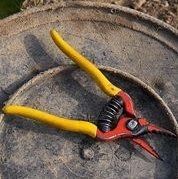More French harvest reports for 2008

We continue our coverage of the challenging 2008 harvest in France with a detailed look at right bank Bordeaux and Provence.
St-Émilion, Pomerol and Fronsac
The Conseil des Vins de St-Émilion has compared weather conditions with those of 1988 in terms of average temperatures, sunshine levels and rainfall, as well as with regard to the dates for the principal growth stages, the timing of the harvest and yield forecasts.
It reported frost on 7 April and hail on 28 July although these affected only a small part of the appellations. But the conditions were difficult right up to the end of August and winegrowers in St-Émilion, Pomerol and Fronsac (as everywhere in Bordeaux) had to carry out 'continuous, costly work in their vineyards in order to take full advantage of the exceptional weather that followed in September and October' (for example, early leaf removal, green fruit elimination and lots of cleaning up to improve fruit ripening). The Conseil also suggests that Merlot, which represents more than 70% of the vines in St-Émilion, Pomerol and Fronsac and tends to develop and ripen earlier than Cabernet Sauvignon, benefited from the following factors:
· 2008 was rather cool and dry with rainfall close to the 30-year average.
· Flowering was spread out from the end of May and there was a greater delay between the different growth stages.
· Vine growth was slow and ripening of the grapes was progressive, preserving their aromas, freshness and balance. Ripening varied according to vineyard situation, the condition of the vines and soil characteristics.
· Yields were naturally low.
· There was great variation between daytime and night temperatures, which encouraged anthocyanin development [so the colour should be good –JH].
· The harvest period stretched from 25 September to 25 October (even into November on a few estates) in exceptional conditions of dry weather with cool nights and warm days and plenty of sun and a little wind.
After alcoholic fermentation the Merlot wines showed:
· Very good alcohol content of between 12.5 % and 14 % by volume.
· Marked acidity, indicating that the developing wines have good balance.
· Impressive colour.
· Powerful complex aromas of fresh red and black berries.
· Tannins that appear to be elegant, round and mellowed.
The Conseil doesn’t say much about Cabernet Franc and Cabernet Sauvignon except that ‘grapes harvested in the second half of October took advantage of the long period of fine weather and will add their own quality and elegance to the fruity roundness of the Merlots’. Time and tasting will tell if elegance also means some herbaceousness or even under-ripeness in the Cabernets.
The Conseil Interprofessionnel des Vins de Bordeaux (CIVB), writing an early report in September, ie before the harvest, was also suggesting strong parallels between 1988 and 2008. They estimated that yields across the regions would be between 5.2 and 5.8 million hectolitres (compared with an average of 6 million hl over the last 5 years).
Paz Espejo, head winemaker at major Bordeaux producer and négociant Cordier made the following observations in early November: “2008 is proving to be a wonderfully fruity, crisp and lively white year for both Sémillon (round and powerful – not as with the 2007s) and Sauvignon (aromatic, pure and crisp). The wines which have finished fermenting are now on the lees and we will keep them there for two to three months.
“The only negative point is the quantity – production is down 30 to 50% everywhere! It’s the same for the reds – even if the yields are just a little bit higher there is an evident lack of volume. We are feeling very confident for the quality of the reds – colour is good, and they are showing roundness and beautiful fruit expressions. I do not think that we will have very big or heavy-bodied wines, rather they will be quite elegant and harmonious. The Merlots definitely seem to be better than we thought.”
Provence
The Conseil Interprofessionnel des Vins de Provence (CIVP) produced the following report at the end of October on the basis of research they conducted by the CIVP among oenologists and growers (though they refer to them as ‘terroir experts’). Particularly remarkable is how drawn out the harvest was.
The 2008 harvest was completed throughout Provence at the end of October. On average, it began a week later compared with previous, generally more precocious, vintages, and lasted about five weeks longer, between the early- and late-ripening areas.
As the harvest approached, the crop was healthy and the localised rain storms at the end of the summer had a beneficial effect on volume without compromising quality. The quality will therefore be good, with this year’s lower-alcohol wines boasting the clear tones typical of Provence. Cool nights encouraged phenolic maturity and the resulting 2008 rosés are aromatic: they can already be qualified as fresh, elegant, delicate and light. The reds are rounded and full, and the whites fruity with citrus notes.
In terms of volume, although estimates were for an average crop, the quantity of juice from the first pressings was satisfactory, with a slightly higher yield than 2007, most notably in the regions which had experienced the recent rainfall.
Estimates for the Côtes de Provence suggest a small increase in volume, notably in the Var, about 5% higher than in 2007, which is still a small harvest for the appellation. Coteaux Varois en Provence experienced a harvest comparable with that of 2007. Coteaux d’Aix-en-Provence is likely to produce volumes of around 5% less than last year. For the region as a whole, the volume of AOC rosé will be similar to that of 2007, if not 3-5% higher.
Other 2008 French harvest reports and video snapshots already published on this site:
Jaboulet on 2008
2008 in the Languedoc
Burgundy 2008, the growing season
Dubourdieu on 2008 Bordeaux
Guigal 2008 harvest report
Hubert de Bouard on 2008
Loire 2008
Vintage 2008 in Bordeaux (and Burgundy)
Become a member to view this article and thousands more!
- 15,407 featured articles
- 274,950 wine reviews
- Maps from The World Atlas of Wine, 8th edition (RRP £50)
- The Oxford Companion to Wine, 5th edition (RRP £50)
- Members’ forum
- 15,407 featured articles
- 274,950 wine reviews
- Maps from The World Atlas of Wine, 8th edition (RRP £50)
- The Oxford Companion to Wine, 5th edition (RRP £50)
- Members’ forum
- 48-hour preview of all scheduled articles
- Commercial use of our wine reviews
